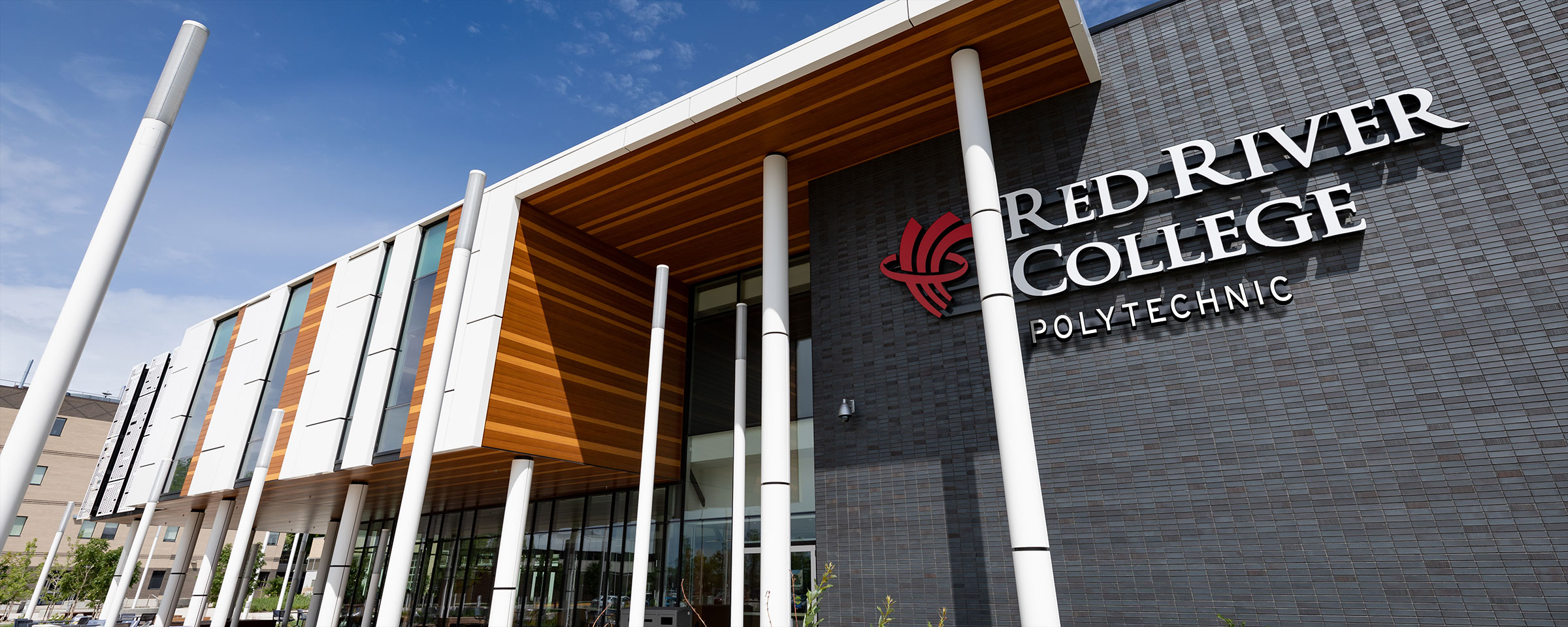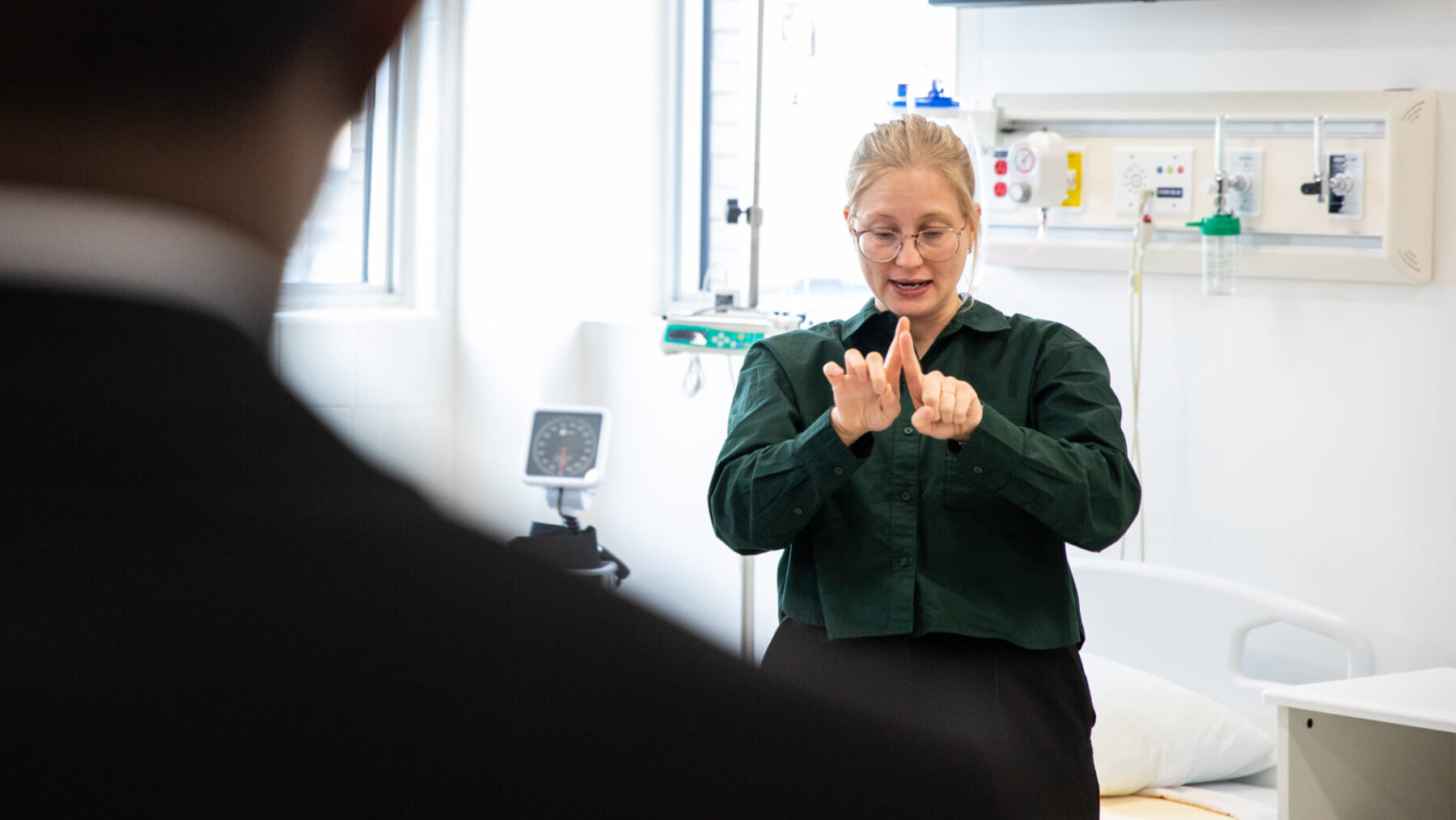ASL-English Interpretation Program Returning in Fall 2025
We are thrilled to share that the Government of Manitoba has approved the renewal of the ASL-English Interpretation Program (AEIP) at RRC Polytech and the program will run once again starting in the 2025-26 academic year.
The program has undergone an academic transformation of its content, design and delivery to better meet the emerging needs of learners and the community. We are excited to offer the newly re-developed program and begin accepting students for the upcoming Fall 2025 term. The application process is being developed, and we will share admission details as they become available. Please note the program will be offered pending sufficient enrolment.
RRC Polytech is committed to creating a culture of inclusivity both on campus and in our communities. This new advanced diploma will have benefits to the community, including improved outcomes for students who will graduate from the program, and ultimately for all communities they will support.
A version of this update, shared in ASL, is below.
Learners wishing to find more information about the program can visit the FAQs below or contact Dr. Ginelle Giacomin at ggiacomin@rrc.ca.
Frequently Asked Questions
What is the program?
Red River College Polytechnic’s ASL-English Interpretation program (AEIP) provides a foundation for fluency in American Sign Language (ASL), as well as Deaf history and culture, interpreting theory, with practice in interpretation both in class and in the field. We pride ourselves on graduating students with a well-rounded entry-level skill set of both the practical skills of interpreting and the academic skills that students require to be employed as an ASL-English Interpreter. Attitude, attendance, hard work, and participation are some of the key elements of program success. Our graduates’ success demonstrates that students at RRC Polytech are prepared interpreters who are true professionals that are leading fulfilling careers serving the Deaf and non-Deaf community.
What can a student do after graduation?
Our program will prepare you to work as an entry-level interpreter in settings ranging from K-12 public schools to colleges, businesses, and social services. You will work in multiple small and large groups, either in classes and/or community settings. In addition, successful completion of our program prepares you to take the Canadian Association of Sign Language Interpreters (CASLI) Generalist Knowledge Exam. Currently, the demand for interpreters is high.
When does the program start?
The first intake of the program will be in Fall of 2025.
How long is the program?
The AEIP is a three-year full-time program encompassing eight terms, with the final term being a work-integrated learning opportunity.
Where is the program located?
This program will be held in-person at Notre Dame Campus.
What are the admission requirements?
Prospective students are required to have completed grade 12, must meet English language requirements and provide a declaration for check documents form.
In addition, prospective students require:
Require basic proficiency in American Sign Language or the successful completion of one of the following options within the last three years: (Proof of proficiency or course completion is required)

Or
• Evidence of American Sign Language competency as shown by the American Sign Language Proficiency Interview (ASLPI) with a minimum score of 2.0. ASLPI ratings older than one year will not be accepted for admission into the program. (Note: All ASLPI testing is handled by Sign Language Institutes Canada.)
How can I apply?
Registration is now open. Visit the ASL-English Interpretation page on Program Explorer to see admission requirements and apply.

